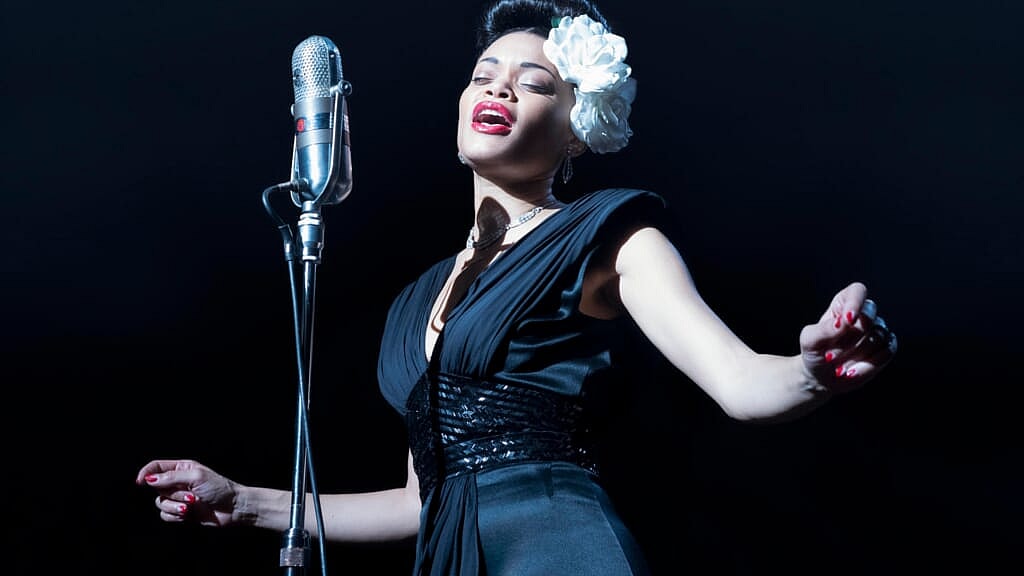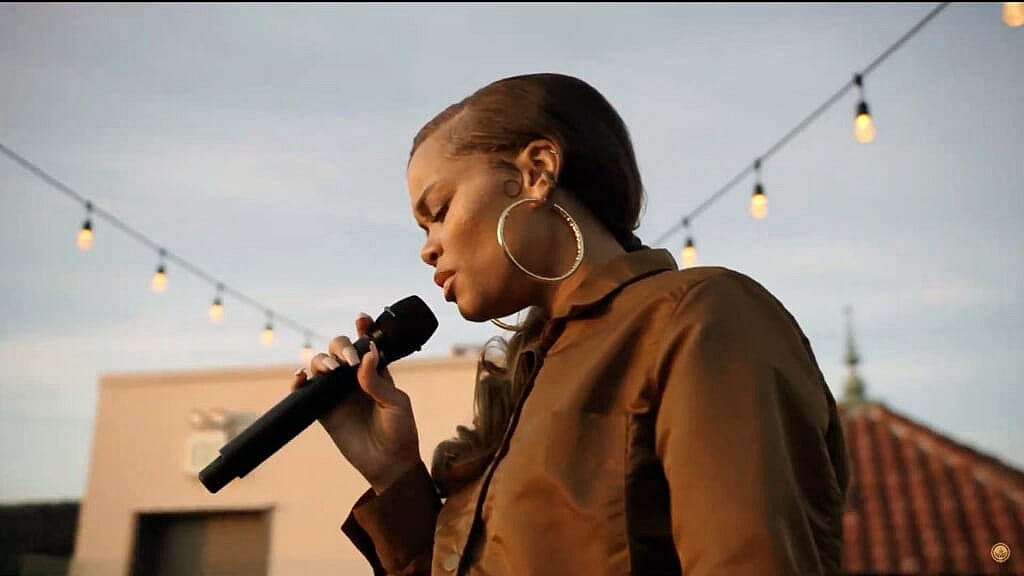The United States vs. Billie Holiday has finally hit Hulu and the film is sure to put Andra Day on everyone’s radar. The Grammy-nominated singer, who stars as Lady Day in the film directed by Lee Daniels, delivers an awe-inspiring performance as the late jazz singer and icon who struggled with sobriety and spent much of her career being vigorously pursued by the FBI.
Read More: Ruth E. Carter helps Hollywood highlight our history like no one else
theGrio sat down with the multi-talented beauty to find out how she pulled off such a huge task so remarkably.
“It was prayer and faith. It was overcoming fear. I mean, it was jumping and trusting the process and trusting that I was there for a purpose and for a reason,” she says.

“It was a gargantuan team effort by people of incredible integrity and even greater talent. My cast really poured into me in such a special way. Tasha Smith is my acting coach and a great director and really gave so much to me and just really prepared me for this. Tom Jones, my dialect coach as well. Suzan-Lori Parks wrote a great script. So just I can’t say enough about the whole ecosystem and the whole family that really, really gave me space to give that performance that people are loving so much.”
Even though critics are already applauding her work, Day reveals she refused the role when it was first offered to her.
“My manager first brought it to my attention and my first, not just thought, but my first reaction was really just ‘No.’ It was like an easy ‘No’ too. And I assumed it would just be ‘No’ and stay ‘No’ and we weren’t going to do this because this was a terrible idea,” she admits.
“Initially, I was just scared because I’ve never acted before. I’ve done it in high school and in middle school, I did some musical theater. But, you know, that is a far cry from doing a major motion picture and leading a cast of people… I just thought it was ridiculous to even consider me for the role without that experience. And then I didn’t want to retell The Lady Sings the Blues because I was such a huge fan of Diana [Ross] in that movie.”
Even though Day has had a couple of minor roles portraying lounge singers, her starring spot as Holiday required her to confront some pretty dark emotions.
“The hardest scene to shoot for me was, as you can imagine, the lynching scene was incredibly challenging to shoot,” says Day. “It was hard for multiple reasons, it was hard because of what we were actually talking about; the witnessing and looking at this actual lynching, even though it’s a movie set, it’s like this is what a body looks like.”
Much of the film focuses on the FBI’s mission to silence Holiday and to prevent her from singing “Strange Fruit,” the anti-lynching song written by Abel Meeropol and first sung by Holiday in 1939.
“And worse, even as the song says, with the bulging eyes and the twisted mouth, and probably the smell of a body, and a burnt body. And so it’s it was just rough to be in a space to see a Black mother hanging from the tree, and to be in this place with all my beautiful Black costars. And to just think that at any given time this could have happened or could, [now] unfortunately, with nooses being hung in the Capitol.”
The iconic song helped to fuel the rising civil rights movement at the time and that made Holiday a threat to the powers that be.
“They do not like Black people, let alone the idea of black liberation and equality or freedom or autonomy. And so she represented all of those things that they hated the most that they’ve been taught to hate the most, that they chose to continue hating the most, and yet they had to stop or they had to silence her. And that’s always been a goal,” says Day.
“But with the abolition of slavery, I mean, even with the laws that were enacted and vagrancy laws and all of those things, you know, it’s always been an attempt to sort of monetize Black bodies through the process of criminalization, as we’ve seen. So she was a threat to their established and their desired way of life.”
Day revealed that she had to pull from her own traumas to get to the right mental space to portray such pain, and that fact is troubling in itself.

“It was that was difficult to see that and to live in that space and understand what it would have been like. But also the thing that was difficult was that in order to fully, emotionally realize what I needed for that moment, I had to grab from family trauma as well. A lynching should be enough to get you there.”
Read More: Andra Day began drinking, smoking, lost 40 pounds for Billie Holiday role
She continues, “But we are very familiar, unfortunately, as a people and as a community with this magnitude of loss and this magnitude of violence orchestrated against us and this type of trauma and an even greater victory in resilience. But still, it’s a fire to go through…I hated myself in that moment that I had been desensitized to violence enough that I had to pull on anything other than what was right in front of me.”
The United States vs. Billie Holiday is streaming now on Hulu.
Check out the full interview in Episode 4 of How Hollywood Highlights our History:
Have you subscribed to theGrio’s podcast “Dear Culture”? Download our newest episodes now!
TheGrio is now on Apple TV, Amazon Fire, and Roku. Download theGrio today!

